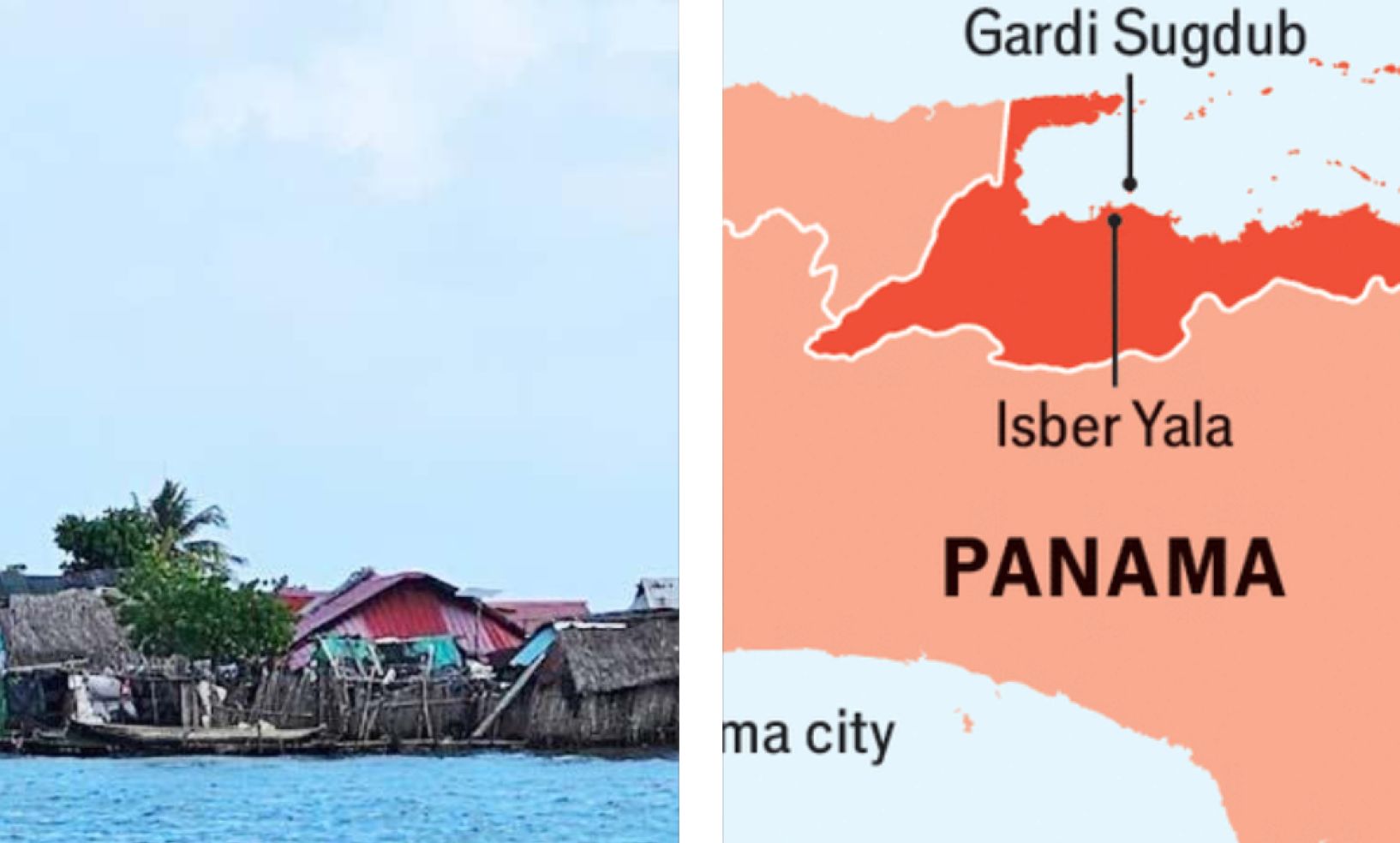By Eleni Poulios
The Guna are an indigenous tribe that have lived on the island of Gardi Sugdub since the 19th century.
Even though they consider it to be their home, they have no other choice than to flee and the reason for that is climate change, or to be more exact, the rising sea levels threatening to sink the island.
The island, which is only 400m long and 150m wide, is located in the San Blas Archipelago, and likely to be rendered uninhabitable by 2050, according to scientists.
A scientist at the Smithsonian Tropical Research Institute in Panama, Steve Paton, has said that he is fairly certain that most, if not all of the island will have disappeared by the end of the century.
“It is very unlikely that the island will be habitable by 2050, based on current and projected rates of sea level rise”, he stated.
Rising sea levels
Even though climate change and rising sea levels have become a more pressing matter in the last few years, the topic of relocation actually arose more than a decade ago – because of overpopulation.
Due to the increasing number of citizens, the people were forced to build new homes closer to the water which now, with the more recent issue of rising sea levels, causes an imminent threat to many.
Residents of the island have been urged to relocate to Isberyala, a new settlement that has been built by the Panamanian government alongside funding from the Inter-American Development bank.
Located only a 15-minute boat ride and five-minute car drive away, Isberyala has been a great possibility for people to escape the dangers they are facing.
READ MORE: ASEAN’s fate: Hinging on Malaysia’s response to global instability

Mixed feelings
However, the relocation project has caused mixed feelings among the islanders and has divided their community.
Many of them, around 1,000, have left already, while approximately 100 still remain on Gardi Sugdub.
Some of them because they simply do not want to leave their home and they don’t believe they are as much at risk as scientists state, but others remain because space on Isberyala has run out.
The settlement, even though it brings many great benefits to the islanders such as a school and constant running power, also faces issues like a lack of water access and no medical care.
Those projects were in planning, but due to the lack of funding, the construction and improvement of its infrastructure are stalled.
Authorities in Panama have stated that they are assessing how to create more space and make the necessary changes and are hoping to bring the plans back to life this year.
READ NEXT: US to lose international foothold as USAID faces end of the line
